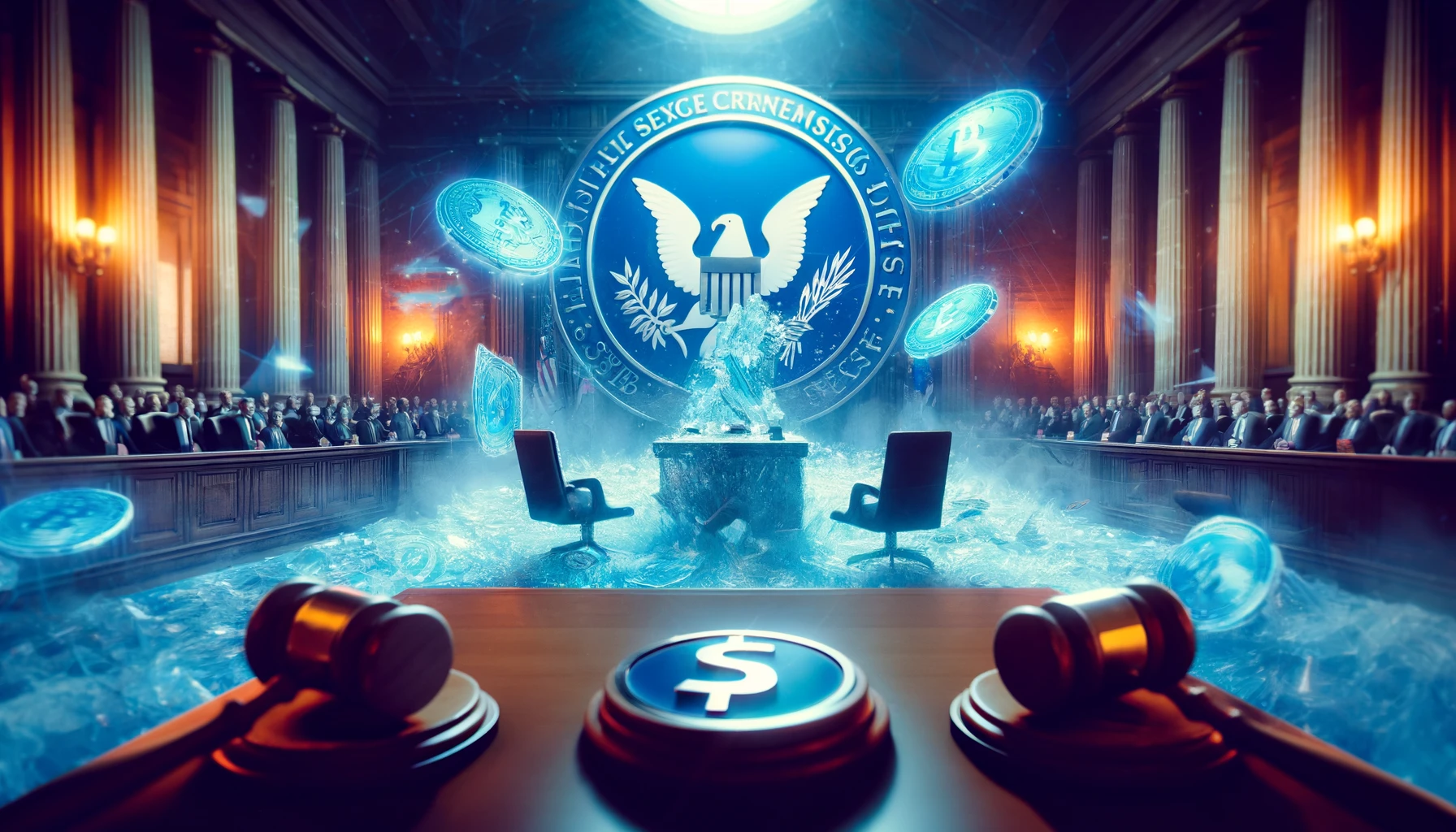 CaryptosHeadlines Media Has Launched Its Native Token CHT.
Airdrop Is Live For Everyone, Claim Instant 5000 CHT Tokens Worth Of $50 USDT.
Join the Airdrop at the official website,
CryptosHeadlinesToken.com
CaryptosHeadlines Media Has Launched Its Native Token CHT.
Airdrop Is Live For Everyone, Claim Instant 5000 CHT Tokens Worth Of $50 USDT.
Join the Airdrop at the official website,
CryptosHeadlinesToken.com
In a major ruling on Tuesday, U.S. District Judge Katherine Failla ordered to pause the SEC’s case against Coinbase. The ruling leaves it to an appeals court to decide whether the case can go forward or should be tossed. Judge Failla recognized that Coinbase’s argument that differing court rulings on crypto’s legitimacy would highlight that the question in this case is novel and that it needs clarification.
The judge reiterated that this legal uncertainty warrants the pause, writing, “Conflicting authority exists concerning Howey’s applicability to crypto-assets.” It represents a major challenge to the S.E.C.’s view, which has maintained for years that most crypto assets clearly fall under existing securities laws.


A Setback for the S.E.C.’s Enforcement Playbook
Judge Failla’s ruling is a boost for the SEC, which has taken a tough line on the cryptocurrency industry under its current leadership. The agency has sought to regulate the market more strictly by classifying most crypto assets as securities. Failla’s ruling challenges that assumption, declaring it an “issue of first impression” that warrants further judicial review.
At the centre of the push-and-pull is the Howey Test, a legal standard established in 1946 to determine whether an asset is a security. Under the test, an asset is a security if there is an investment of money in a common enterprise with a reasonable expectation of profit to be derived from the entrepreneurial or managerial efforts of others. While traditional stocks would appear to fit this definition neatly, Judge Failla expressed scepticism about its simple application to crypto tokens.
Appeals Court Will Rule on Crypto’s Legal Standing
Jazz case now heads to the Second Circuit Court of Appeals, one of the most powerful appellate courts in the United States. The SEC was successful in getting the court to decide whether to hear its case against Coinbase on an interlocutory appeal.
If it materializes, the Second Circuit will decide whether the suit should continue in Judge Failla’s court or be dismissed altogether. Coinbase’s Chief Legal Officer, Paul Grewal, said he was pleased by the ruling, tweeting that “Over the strenuous objection of @SECGov, Judge Failla has GRANTED our motion for leave to pursue an interlocutory appeal and STAYED the district court litigation. Thank you, Your Honor, and the Court for your careful consideration.
Dismissing the SEC’s claims could redefine how crypto companies can operate in the U.S., either establishing clearer lines for regulatory activity or markedly limiting the SEC’s enforcement authority.
What This Means for the Crypto Industry
That decision might have an impact on other legal cases involving crypto companies. Judges have grappled with how to apply laws decades old to new technologies, leading to conflicting decisions and a lack of clarity. Judge Failla’s recognition of this issue indicates that some within the judiciary understand how crypto was designed in such a way as to challenge conventional legal principles.
In order to grant Coinbase’s request for interlocutory appeal, the judge had to decide that resolving those legal questions while the case was ongoing would materially advance the proceedings. Her decision suggests that clarity from the Second Circuit could clarify or even kill the case.
There is a lot on the line both for Coinbase and the SEC. The ruling is a chance for Coinbase to get the kind of legal clarity the industry desperately needs. For the SEC, it could either be a vindication of its enforcement approach or a blow to its ability to police digital assets.


What’s Next?
The Second Circuit’s ruling could give other courts a frame of reference for dealing with crypto-skewed cases in the future. If the court agrees to take up the appeal, its ruling could affect not only Coinbase but the cryptocurrency industry as a whole.
By the time this case goes through the legal process, we will need a concrete regulatory framework that works with the complexities of digital assets. For now, the halt of the SEC’s lawsuit provides fleeting relief for Coinbase and a rallying point for broader conversations about the future of crypto in the U.S. regulatory landscape.
FAQs
1. Why did the judge give the SEC lawsuit against Coinbase a time-out?
The judge stayed the case so that an appeals court could resolve an open question on crypto regulation, citing conflicting rulings and the difficulty of applying securities laws.
2. How is the Howey Test relevant in this scenario?
The Howey Test is used to find out whether an asset is considered a security. The judge noted that its applicability to crypto assets is a new, unsettled issue that needs further judicial consideration.
3. What is an interlocutory appeal, and why was it allowed?
An interlocutory appeal is one that reviews a mid-case legal issue. It was granted here because settling these questions now could trim or eliminate the SEC’s claims.
4. How could this ruling affect the wider crypto industry?
The ruling could set a precedent for future crypto cases, prompting courts to define the boundaries of regulation and possibly curtailing the S.E.C.’s powers over digital assets.











